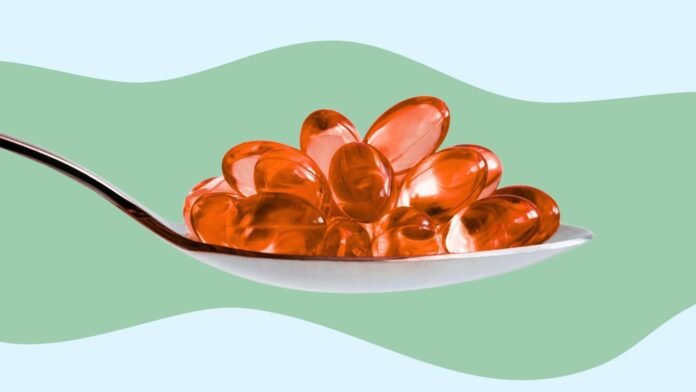Most people don’t get enough omega-3 fatty acids in their diet, a gap that krill oil supplements can help fill. Krill oil, derived from tiny crustaceans, is a growing alternative to traditional fish oil. Here’s what you need to know about its potential health benefits, how it works, and when to consider taking it.
Why Krill Oil Matters
Omega-3s, particularly EPA and DHA, are vital for heart, brain, and cellular health. While fatty fish are the best source, most adults don’t eat enough seafood to reap these benefits. Krill oil provides a concentrated dose of these essential fats. It also contains astaxanthin, a powerful antioxidant that sets it apart from standard fish oil.
Key Benefits Backed by Research
Heart Health Support
Chronic inflammation is a major driver of heart disease. Krill oil’s anti-inflammatory properties may help lower triglycerides, a type of fat linked to heart problems. Studies show that krill oil supplementation can reduce triglyceride levels by up to 26% in people with high levels. It also shows promise in improving cholesterol profiles, although more research is needed.
Powerful Antioxidant Effects
Krill oil contains astaxanthin, a carotenoid antioxidant 6,000 times more potent than vitamin C. Astaxanthin fights free radicals, protecting cells from damage that can lead to chronic diseases like cancer and age-related cognitive decline. It may specifically benefit brain and nervous system health.
Gut Health Potential
Emerging research suggests krill oil can reduce intestinal inflammation and promote a healthier gut microbiome. This could be especially useful for people with inflammatory bowel disease (IBD) or leaky gut syndrome, but further studies are necessary.
Relief from Joint and Menstrual Pain
The anti-inflammatory effects of krill oil may reduce pain associated with arthritis and menstruation. Clinical trials show that krill oil supplementation can improve knee pain and stiffness in osteoarthritis patients. Some older studies suggest it may also reduce pain relievers needed for PMS symptoms.
Does Krill Oil Help with Weight Loss?
The evidence is weak. While krill oil may reduce inflammation, which is linked to obesity, there’s no strong proof that it directly leads to weight loss. Prioritizing a balanced diet, exercise, and stress management remains the most effective approach.
Dosage and Forms
There’s no established optimal dosage for krill oil. The FDA recommends a combined daily intake of EPA and DHA not exceeding 3 grams, with no more than 2 grams from supplements. Krill oil is available in capsules, liquid drops, soft gels, gummies, and powders.
Important Precautions:
- Allergies: Avoid if allergic to shellfish.
- Blood Thinners: Consult your doctor if on blood-thinning medication.
- Surgery: Stop taking krill oil before surgery due to its blood-thinning effects.
- Pregnancy/Breastfeeding: Discuss with your healthcare provider before use.
Food First: Prioritizing Whole Sources
Before turning to supplements, focus on incorporating omega-3-rich foods into your diet. Cold-water fatty fish like salmon, trout, herring, mackerel, and sardines are excellent choices. Flaxseed, chia seeds, and walnuts also provide omega-3s, though in a different form than those found in krill oil.
The Bottom Line
Krill oil is a promising supplement for boosting omega-3 intake and supporting heart, brain, gut, and joint health. However, more research is needed to fully understand its benefits. Always consult your doctor before starting any new supplement regimen.
